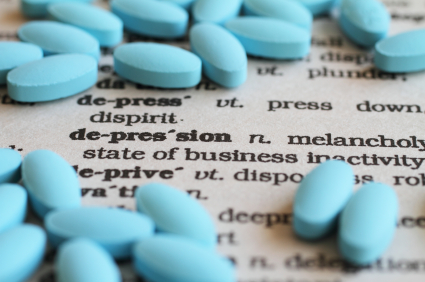Low Omega-3s in Children Associated with Poor Cognitive Performance
Omega-3 fatty acids (especially the type known as DHA) are essential for brain development and functioning, but most people eating a modern western diet consume low amounts of these compared to omega-6 fatty acids. Omega-3s are anti-inflammatory while omega-6s are pro-inflammatory. A large UK study published in the journal PLOS One in 2013 reported that healthy 7- to 9-year-olds with lower levels of omega-3 long-chain polyunsaturated fatty acids in their blood (including DHA, DPA, and EPA) had lower reading ability and working memory, and also had more behavior problems.
The oils in fish are the best source of omega-3 fatty acids, and most of the children with poor reading ability in the study fell short of the UK nutritional guideline that recommends eating two portions of fish per week.
Girls in the study had more dramatic deficits in omega-3 levels than boys. In adults, women tend to metabolize long chain polyunsaturated fatty acids more easily than men, but this difference is driven by hormones, and because the girls in the study had not yet reached child-bearing age, they did not reflect this benefit.
Omega-3 deficits in children have been connected with attention deficit hyperactivity disorder (ADHD), and supplementation with extra omega-3 fatty acids in the diet has led to improvements in ADHD.
Choline Treatment For Pregnant Mothers And Newborns Improves Babies’ Cognition and Normalizes a Risk Factor for Schizophrenia
Deficiencies in GABA inhibition have been linked to the risk of schizophrenia (and perhaps bipolar disorder). GABA receptors are initially excitatory but switch to being inhibitory early in life. Choline derived from phosphatidylcholine or from eggs and meat in the diet is important in increasing GABA receptor development and maturity.
Ross et al. reported this year in the American Journal of Psychiatry that in a placebo-controlled study in which mothers took phosphatidylcholine in the last 2 trimesters of pregnancy (at doses of 3,600mg in the morning plus 2,700mg in the evening) and infants took 100mg/day for 12 weeks, the infants who received choline showed better neuronal inhibition than infants who did not receive choline on a P50 test of auditory evoked potential, in which the brain’s response to a series of beeps is recorded. An overactive P50 response is a sign of deficiencies in GABA inhibition.
In infants with a common gene variant in the alpha 7 nicotinic receptor that makes it function less well (which also may be a risk factor for the development of schizophrenia), the choline regimen normalized the P50 test, while placebo had no effect. However, in a recent study by Cabranes et al. published in Psychiatry Research, there was no association of the alpha 7 gene variant and schizophrenia or bipolar disorder, although patients with bipolar disorder and patients with schizophrenia did perform differently on the P50 evoked potential test than controls did.
Editor’s Note: In an editorial by Judy Rapoport that accompanied the Ross et al. study, the difficulty of using the findings in clinical practice are discussed. Meck et al. showed in 1999 that choline supplementation enhanced spatial memory, and in several cases nutritional supplements can have beneficial effects on the brain. Rapoport notes the success of perinatal folate in preventing neural tube defects and the likelihood that Vitamin D supplementation can prevent some cases of schizophrenia.
However, extrapolating the choline findings of Ross et al. to clinical practice, especially given the lack of association of the alpha 7 gene variation to psychiatric illness in the study by Cabranes et al., might be premature. Instead, Rapoport recommends a good diet and prevention of infection as first steps for treatment. Choline supplementation would be roughly equivalent to three eggs a day.
Exercise and Brain Health: Some Good Points to Remember
In a review article in the Neuroscientist published in February of this year, Kirk I. Erickson and collaborators wrote that “[m]ajor depressive disorder is considered a risk factor for Alzheimer’s dementia and memory impairment and is associated with less BDNF and greater hippocampal atrophy, possibly through a BDNF pathway. However, exercise and effective treatment for geriatric depression increases BDNF levels, increases serotonin fibers, is associated with greater hippocampal volumes, and reduces the risk for Alzheimer’s dementia.”
Editor’s note: Not a bad set of benefits from exercise! The researchers suggest that exercise is extremely important in reversing the decreases in brain-derived neurotrophic factor (BDNF) associated with depression, helping to improve depressed mood, increasing cardiovascular fitness, and maintaining healthy cognition.
Hippocampal volume and BDNF levels in blood both decrease with age. Yet exercise increases both BDNF and the formation of new neurons (neurogenesis) in animals. New data in humans suggest that aerobic fitness is associated with the size of the hippocampus, both in both children and adults. It is not clear yet whether this increase in hippocampal volume is directly driven by increases in BDNF and/or neurogenesis. However, since a smaller hippocampus is a risk factor both for depression and for mild cognitive impairment progressing to Alzheimer’s dementia, attempting to enhance hippocampal volume in any way possible is probably a good idea.
Methods of increasing hippocampal volume include treatment with antidepressants or with lithium. In the 2012 paper Erickson and collaborators also wrote, “Anaerobic exercise enhances executive and memory function and reduces hippocampal atrophy in late adulthood, and this may be partially mediated through a BDNF pathway.”
Erickson and collaborators conducted a longitudinal study published in 2010 that quantified the amount of physical activity subjects engaged in by calculating the total number of blocks walked per week. Individuals reporting greater amounts of physical activity at the beginning of the study had, upon examination nine years later, greater gray matter volume in several parts of the brain, including the hippocampus. This effect was “dose-dependent,” meaning that only those individuals who walked at least 72 blocks per week (roughly equivalent to 1 mile per day) had significant sparing of brain tissue nine years later. The study found increased gray matter volume in the prefrontal cortex and in the temporal lobe.
After a further follow-up of four more years, greater gray matter volume with physical activity was associated with a two-fold reduced risk of cognitive impairment. The researchers concluded that “physical activity patterns earlier in life were linked to brain volume and cognitive impairment later in life.”
There are a number of important points to remember about cognitive impairment. One is that increasing hippocampal volume and preventing its decrement with aging may help prevent age-related memory loss and potentially the rapidity at which mild cognitive impairment progresses. Read more
Exercise Good for Learning and Memory in Children and the Elderly
Another article in the Telegraph today suggests that aerobic exercise can increase the size of the hippocampus in elderly people and lead to improvements in memory, attention, and ability to multi-task. Children who were more fit were also better at multitasking. Art Kramer of the Beckman Institute for Advanced Science and Technology at the University of Illinois said,
“It is aerobic exercise that is important so by starting off doing just 15 minutes a day and working up to 45 minutes to an hour of continuous working we can see some real improvements in cognition after six months to a year.
“We have been able to do a lot of neuroimaging work alongside our studies in the elderly and show that brain networks and structures also change with exercise.
More Support for the Connection Between Exercise and Cognition
We recently wrote about a study that suggested exercise may improve cognition function in depression. In today’s New York Times, an article suggests that in mice, exercise expanded the brain’s capacity to store energy, a process known as supercompensation.
While a brain with more fuel reserves is potentially a brain that can sustain and direct movement longer, it also “may be a key mechanism underlying exercise-enhanced cognitive function,” says Hideaki Soya, a professor of exercise biochemistry at the University of Tsukuba and senior author of the studies, since supercompensation occurs most strikingly in the parts of the brain that allow us better to think and to remember. As a result, Dr. Soya says, “it is tempting to suggest that increased storage and utility of brain glycogen in the cortex and hippocampus might be involved in the development” of a better, sharper brain.
The Risk-Benefit Ratio Encourages the Use of Antidepressants in Unipolar Depression
Wednesday we reviewed new data that shows that despite the FDA warning that antidepressants can increase suicidal ideation among young people in the first few months they are taken, antidepressants actually reduce acute suicidal ideation and decrease suicidal acts. As we described last year in our article on five myths about antidepressants, antidepressant treatment in recurrent unipolar depression is important to patients’ long-term wellbeing, cognitive functioning, and even life expectancy.
Untreated depression, and particularly untreated recurrent depression, carries high risks not only for lethality by suicide, but also for increases in medical mortality, particularly from cardiovascular disease. In addition to these medical risks, data from many studies suggest that a higher number of prior depressions is associated with increased cognitive dysfunction, and recent large data sets from a case registry in Denmark indicate that patients with four or more prior unipolar or bipolar depressive episodes have double the risk of receiving a diagnosis of dementia in old age. Thus, depressions are dangerous for a patient’s psychological, medical, and cognitive health.
Antidepressants Are Highly Effective in Depression Prevention
In 1992 researcher John Davis completed a meta-analysis of all antidepressant data available at the time in unipolar depression studies and not only found that antidepressant continuation was more effective than placebo in reducing the likelihood of later depressions, but also calculated that the statistical likelihood that this finding was due to chance was minuscule, i.e., p<10-34. John Geddes and colleagues in a meta-analysis in 2003 indicated that there was an approximate 70% reduction in the risk of depressive recurrences with antidepressant continuation compared with discontinuation.
Treatment of a first or second episode of unipolar depression is recommended for six to nine months following achievement of remission. After a third episode, all treatment guidelines of which this editor is aware recommend long-term preventive treatment with antidepressants, particularly if episodes have been severe or close together temporally. This long-term antidepressant continuation for prophylaxis is much like long-term treatment of high blood pressure or high cholesterol recommended for those with or at high risk for cardiovascular disease.
There is some evidence that cognitive behavior therapy reduces the risk for depressive recurrence in those discontinuing antidepressant treatment, but it appears maximally beneficial to engage both psychotherapeutic and pharmacological treatment to prevent future episodes. Read more
Exercise May Improve Cognitive Function in Depression
 Tracy L. Greer of the University of Texas Southwestern in Dallas presented an abstract at the 51st Annual Meeting of the National Institute of Mental Health’s New Clinical Drug Evaluation Unit (NCDEU) in 2011 that suggested that exercise improved the cognitive function of patients being treated with selective serotonin reuptake inhibitors (SSRIs) for major depressive disorder.
Tracy L. Greer of the University of Texas Southwestern in Dallas presented an abstract at the 51st Annual Meeting of the National Institute of Mental Health’s New Clinical Drug Evaluation Unit (NCDEU) in 2011 that suggested that exercise improved the cognitive function of patients being treated with selective serotonin reuptake inhibitors (SSRIs) for major depressive disorder.
Thirty-nine participants reported cognitive impairment at baseline. Subjects were randomized to receive antidepressant treatment in the form of an SSRI augmented by either an exercise regimen designed to burn 16 kilocalorie/kg per week (kkw) or one designed to burn 4 kkw. Both exercise regimens resulted in improved response time on a measure of attention, and for the higher intensity (16 kkw) exercise group, there were improvements in response time for visual memory tasks as well as decreased errors on an executive function task.
Editor’s note: There is a somewhat mixed literature on the efficacy of exercise in potentiating antidepressant effects of other treatments. Recent data by Fred Gage and colleagues showed that in animals, exercise increased not only brain-derived neurotrophic factor (BDNF), which seems to be necessary for long-term learning and memory, but also the formation of new neurons (neurogenesis). Gage found that new neurons that migrated to the dentate gyrus of the hippocampus were more excitable than older neurons and were important in a variety of cognitive tasks.
The newer neurons could more precisely distinguish between different stimuli, while the older neurons were sufficient only for discriminating stimuli that were widely and obviously different from each other.
Thus, the increase in new neurons and BDNF that may follow exercise and antidepressant use may be associated with some cognitive improvement in depression, particularly in the realm of response speed and perhaps also in making relatively fine discriminations among relatively similar objects.
While not much evidence for the effect of exercise on cognition has been collected in humans, exercise has many other benefits. Since it is good for cardiovascular fitness and wellbeing, as well as potentially generating new neurons that could play an important role in fine cognitive discriminations, encouraging exercise in depressed patients (especially as their depression improves and they have renewed motivation to engage in exercise regimens) could be of value, even if exercise is not a guaranteed enhancer of antidepressant effects per se.
BDNF Related to Cognition and Fitness in Men with Coronary Artery Disease
 At the 51st Annual Meeting of the National Institute of Mental Health’s New Clinical Drug Evaluation Unit (NCDEU) in 2011, Walter Swardfager and colleagues from Toronto, Ontario presented a study indicating that brain-derived neurotrophic factor (BDNF) concentrations in blood are associated with cognitive performance and cardiopulmonary fitness in people with coronary artery disease.
At the 51st Annual Meeting of the National Institute of Mental Health’s New Clinical Drug Evaluation Unit (NCDEU) in 2011, Walter Swardfager and colleagues from Toronto, Ontario presented a study indicating that brain-derived neurotrophic factor (BDNF) concentrations in blood are associated with cognitive performance and cardiopulmonary fitness in people with coronary artery disease.
In 88 mostly male subjects with a mean age of 63 years, cardiopulmonary fitness was directly correlated with BDNF in blood as well as higher scores of cognition on two tests, the mini mental status exam and the digit symbol coding task. The investigators concluded that better fitness, psychomotor processing speed, and overall cognition were consistent with a hypothesis that BDNF protects midbrain dopaminergic neurons against inflammatory neurodegenerative processes.
Blood levels of interleukin 6, a measure of inflammatory cytokines, were associated with lower mini mental status scores in a multivariate analysis that controlled for BDNF levels.
Editor’s note: BDNF appears to be necessary for long-term learning and memory. Meta-analyses indicate that BDNF levels are low in depression and improve with euthymia. Many mood stabilizers including lithium, valproate, carbamazepine, and lamotrigine and most types of antidepressants are able to increase BDNF. The current findings linking BDNF with better cardiopulmonary fitness and cognition continue to emphasize the potential importance of BDNF beyond its role as a marker for depression.
In BNN Volume 12, Issue 3 from 2008, we reported on the data of Schmidt and Duman, which indicated that BDNF administered in a subcutaneous minipump is able to reverse many depressive-like behaviors in an animal model of depression, suggesting that even peripheral BDNF may have a role in the central nervous system.
Citicoline May Boost Cognition in Healthy Women
 Citicoline is a natural substance found in the brain and the liver that is also available as a nutritional supplement. At the 51st Annual Meeting of the National Institute of Mental Health’s New Clinical Drug Evaluation Unit in 2011, Erin McGlade and other researchers from the University of Utah Brain Institute presented research showing that citicoline enhanced cognition among healthy women, particularly bringing about improvement in attention. Citicoline has few side effects.
Citicoline is a natural substance found in the brain and the liver that is also available as a nutritional supplement. At the 51st Annual Meeting of the National Institute of Mental Health’s New Clinical Drug Evaluation Unit in 2011, Erin McGlade and other researchers from the University of Utah Brain Institute presented research showing that citicoline enhanced cognition among healthy women, particularly bringing about improvement in attention. Citicoline has few side effects.
The participants in this study were 60 women aged 40 to 60 years who had neither a psychiatric disorder nor any abnormal cognitive decline. The women were divided into groups in which, over the course of a month, they received either 250mg of citicoline, 500mg of citicoline, or a placebo. Both groups who received citicoline performed better on a test of attention at the end of the month than the women who had received placebo.
Editor’s Note: Given that citicoline helps with cognition in healthy women, it may be effective in preventing the cognitive deficits that accompany both the normal aging process and some psychiatric illnesses.







